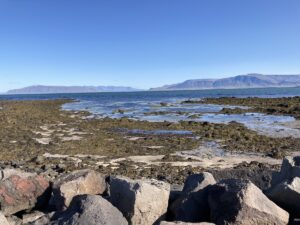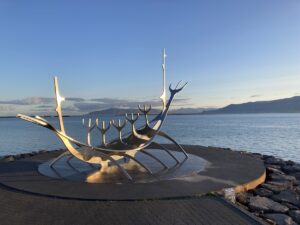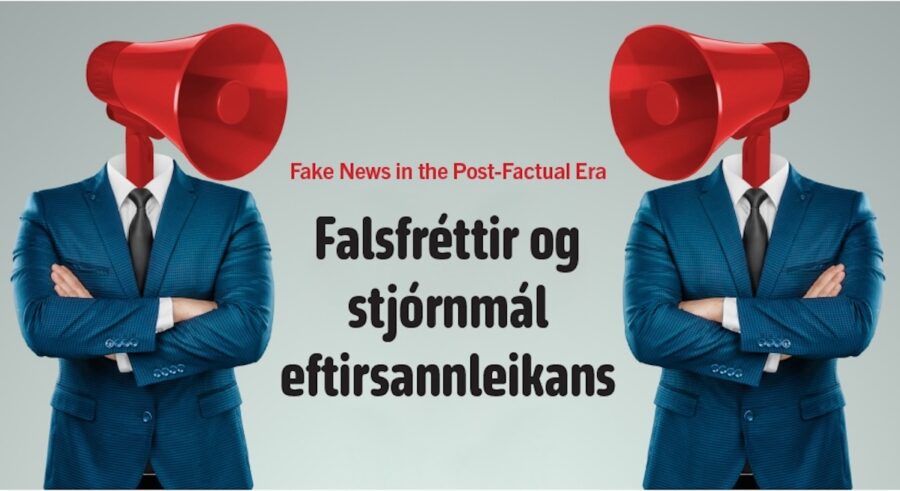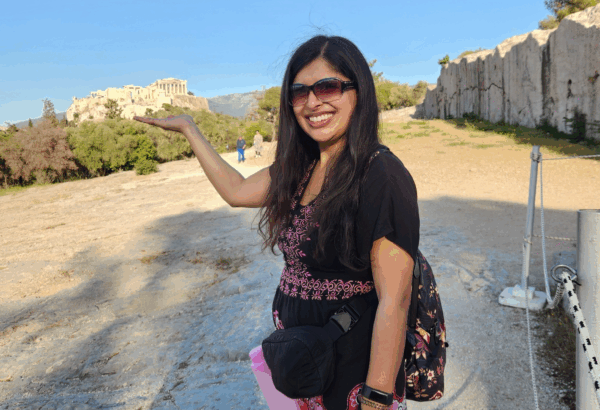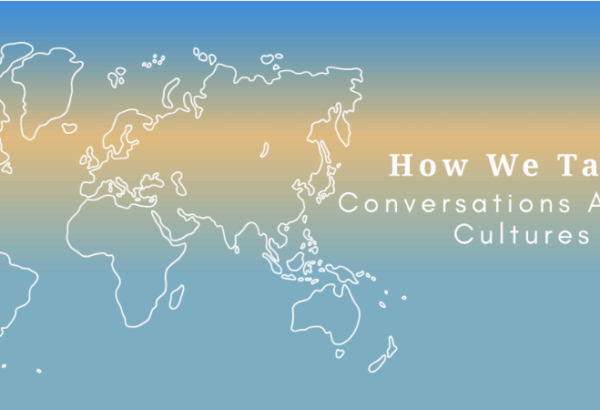Fake News in the Post-Factual Era–It’s Not Just False Beliefs: The Many Faces of “Post-Factual” Democratic Politics.
Open Seminar at the University of Iceland by Ian MacMullen, Practice Professor of Political Science, SNF Paideia Program
My keynote speech for the University of Iceland’s open seminar on “Fake News in the Post-Factual Era” addressed the ways in which post-factual politics can be both consequence and cause of a tribal approach to politics, as people focus on identity – rooting for their team – either because they don’t care about the facts or because they despair of extracting those facts from the barrage of information and misinformation that technology unleashes on us all every day (and sometimes every minute). I learned a lot from the expert responses to my talk – by a journalist, a media regulator, and a political psychologist – and also from the ensuing discussion with a highly engaged and knowledgeable audience.
And then, having done my best to promote three of Paideia’s four pillars (dialogue, citizenship, and service), I checked off the last one by attending to my own wellness, cycling along the paths that arc around the beautiful Icelandic coastline near Reykjavik.
To read the full story, “Media Literacy Important for Children, reported in English, from the Icelandic National Broadcasting Service, click here.
